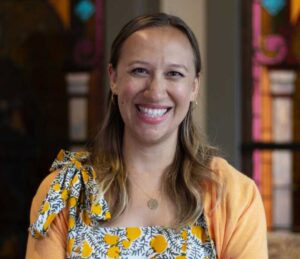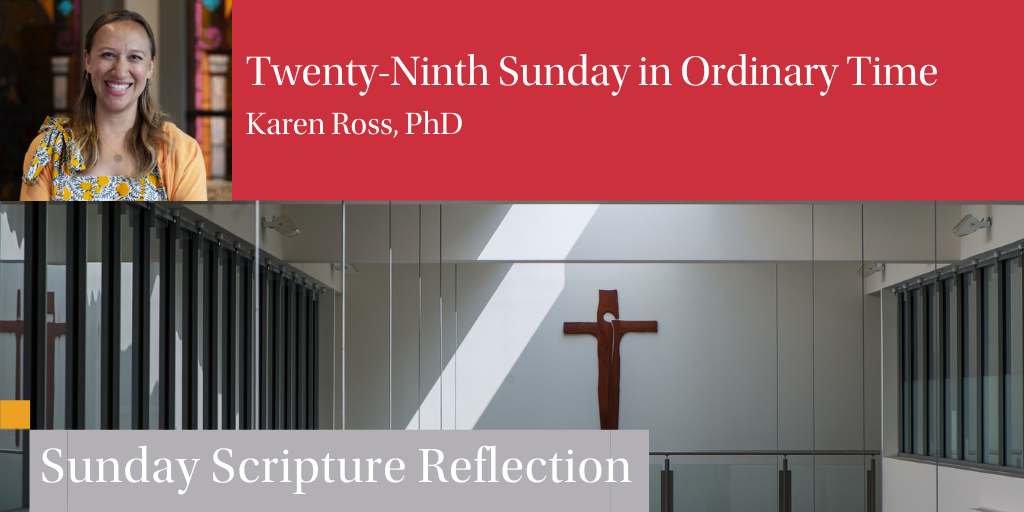
Readings:
Reading I: Ex 17:8-13
Psalm: Ps 121:1-2, 3-4, 5-6, 7-8
Reading II: 2 Tm 3:14-4:2
Gospel: Lk 18:1-8
In the past few years, psychologists and public health researchers have noted the increasing numbers of people experiencing high levels of stress and burnout. According to the American Psychological Association’s 2022 Stress in America Study, 41% of U.S. adults report that the stress level in their lives has increased during the COVID-19 pandemic, with younger generations (Gen Z and Millennials), Latine adults, and parents consistently reporting higher stress levels than others. The pandemic has exacerbated the physical and mental load already affecting marginalized communities, leaving more and more people vulnerable to the effects of disease, racism, sexism, economic exploitation, and ecological destruction, to name only a few. It is so easy for us to feel the weight of the world’s tragedies and oppressions and give in to the feeling of weariness and despair echoed by the psalmist, “from where does my help come?”
In this Sunday’s first reading, the Israelites were under attack, and Moses told Joshua that he would hold the rod of God up to the sky to ensure victory for the Israelites. Over time, however, “Moses’ hands grew weary.” It was then that Aaron and Hur put a stone under him to sit on, and went on either side of Moses to hold his hands steady, aiding the Israelites in victory. This powerful image is like one of midwives who hold on to either side of a mother as she grows weary from the pangs of labor, or of protestors who link arms in solidarity with activists in support of a just cause. When we feel worn down from the stressors of daily life, or from fighting against the many injustices in our world today, how can we persist in our internal and external battles with faith and resiliency?
Paul’s message to Timothy in the second reading provides us with some insight to answering this question during “the last days [when] there will come times of stress.” In the letter, Paul urges Timothy to “continue in what you have learned and have firmly believed, knowing from whom you learned it.” During times of stress or burnout, we can look to the divine wisdom imparted to us throughout our lives by those elders and sacred writings that have guided us in the way of love. Paul seems to be reminding Timothy that what he needs to persevere is already within him, and that he is never working alone; God, in and through the community around us, provides us with the strength to keep going.
In Luke’s Gospel, the parable of the widow and the unrighteous judge also affirms this message that God always hears and responds to those who cry out “day and night.” In this parable, justice comes in the unlikely source of an unrighteous judge. Jesus is presenting God as a God of justice who prevails even over unjust people and institutions. The widow’s faith and persistence are rewarded, even when her efforts may have seemed futile.
Amidst the increasing levels of chronic stress and burnout prevalent in our society, this Sunday’s readings point us to the resiliency that can be generated through community support, and the many ways that God hears and responds to the cries of the most vulnerable. Whether it comes in the form of sitting quietly with a grieving friend, or offering assistance to a parent who needs time to take care of themselves, may we each strive to practice community care, knowing that our help comes from the Creator, who breathes new life into all who are weary.
Director of A Pathway for Tomorrow: Co-Creating the Church of Tomorrow at CTU
